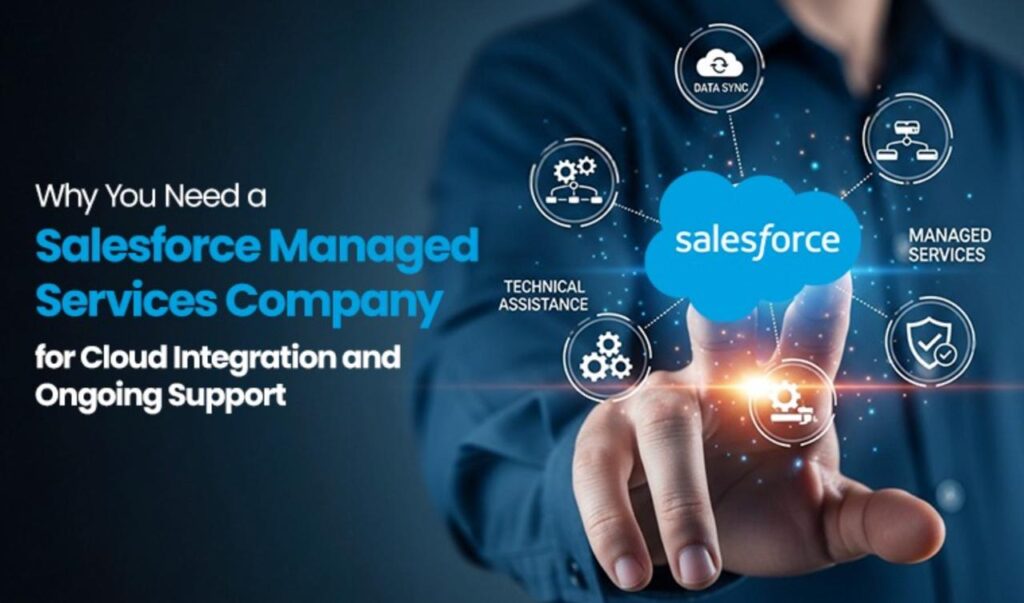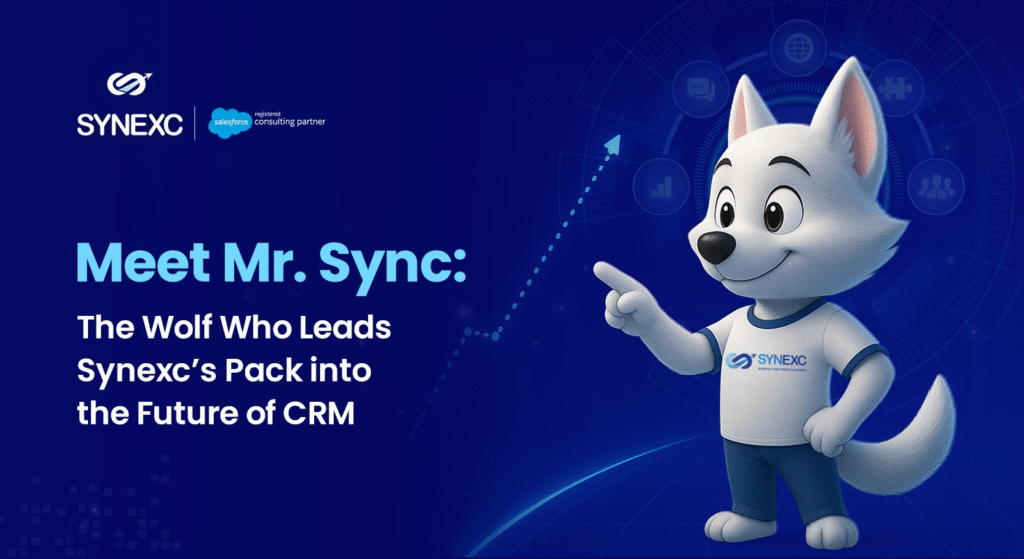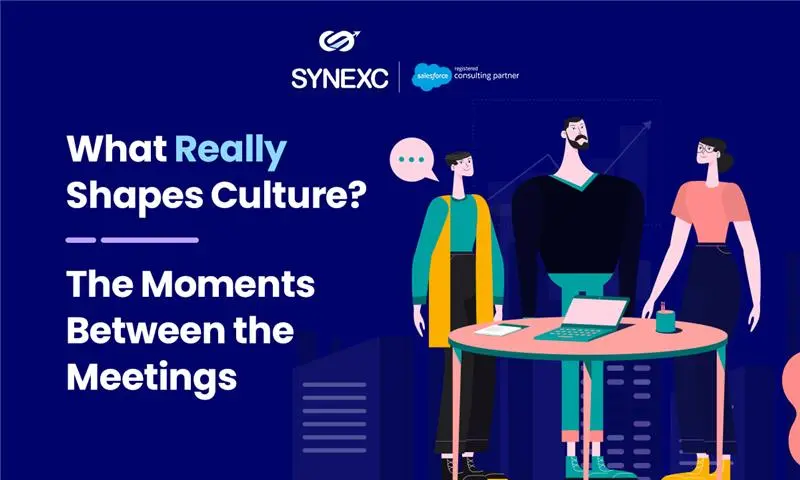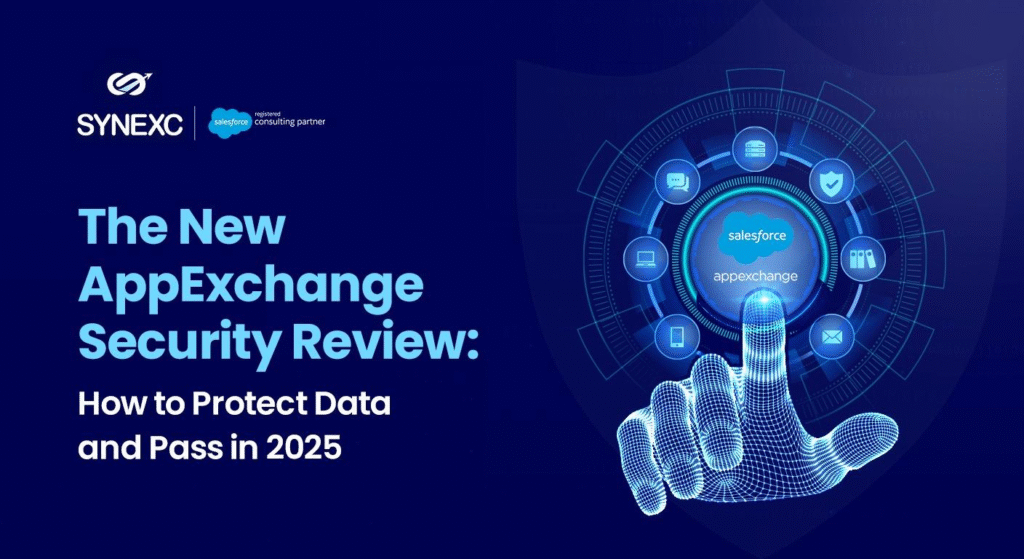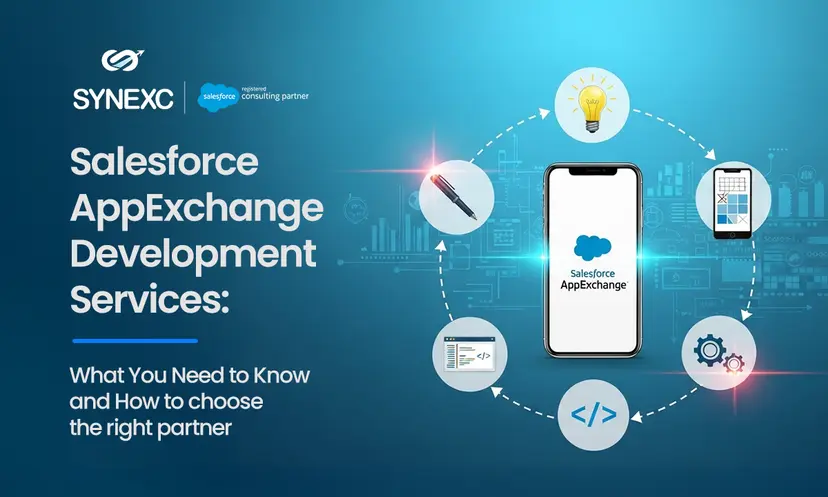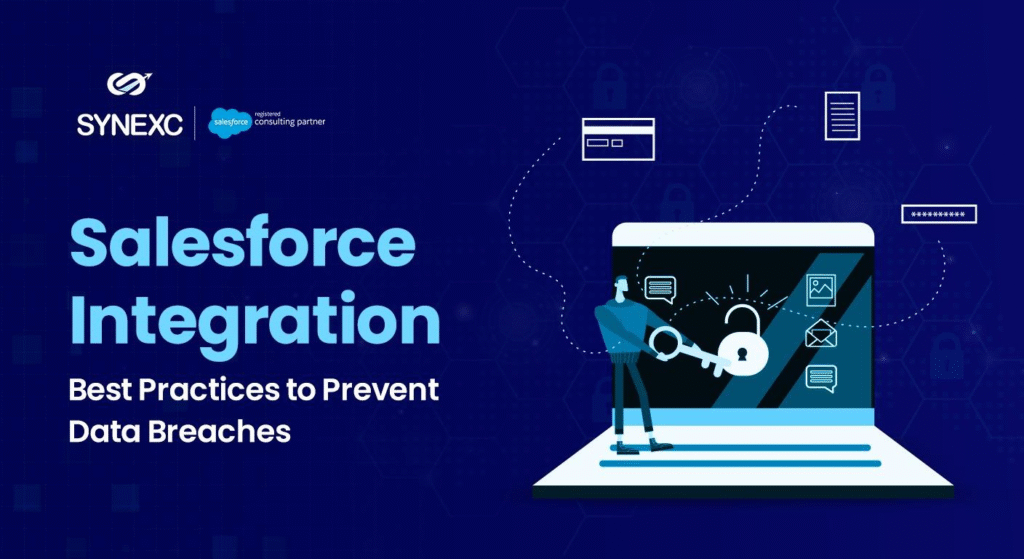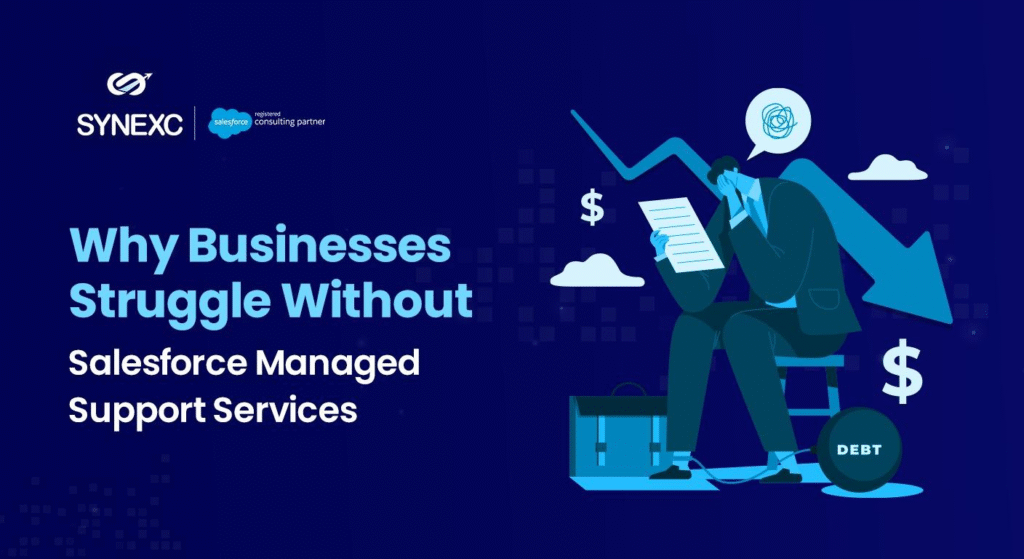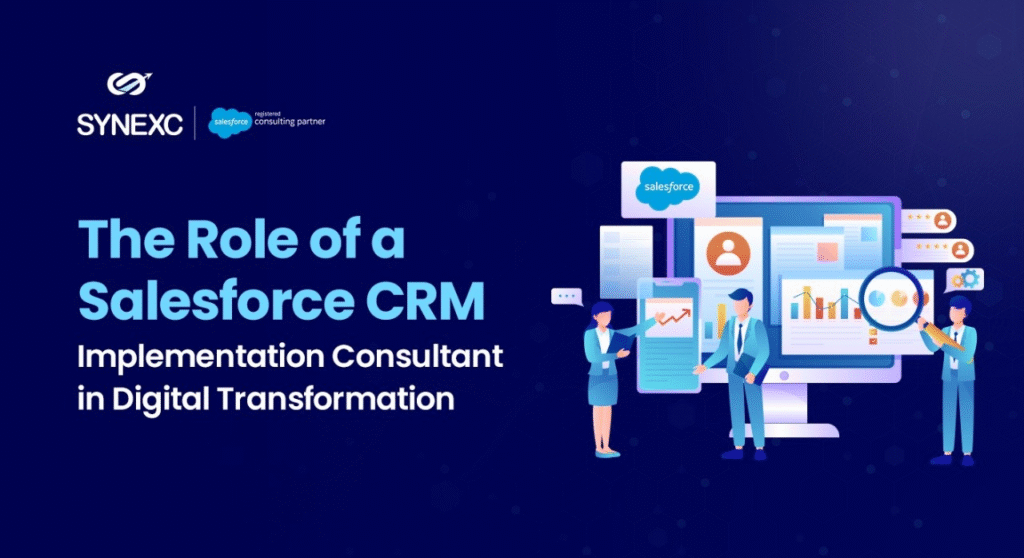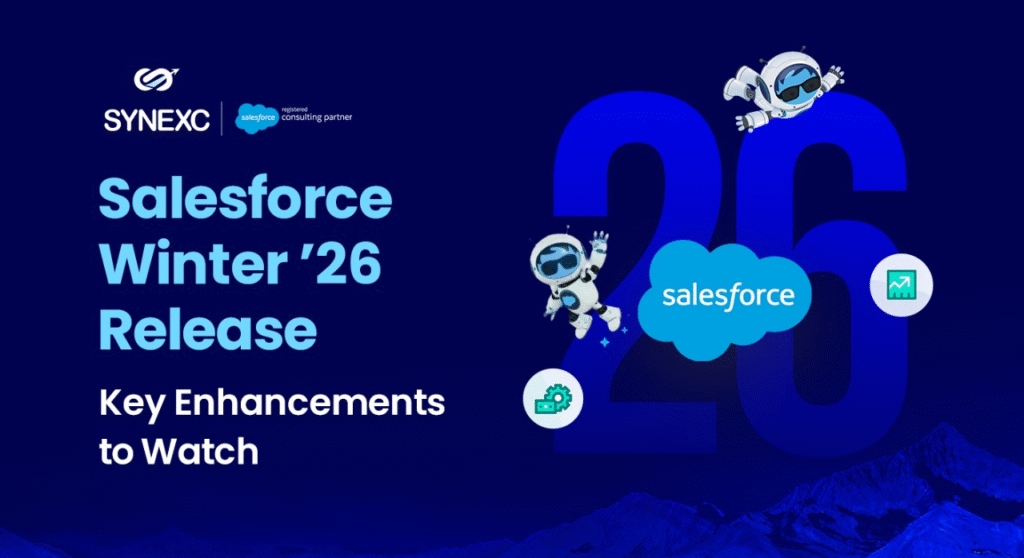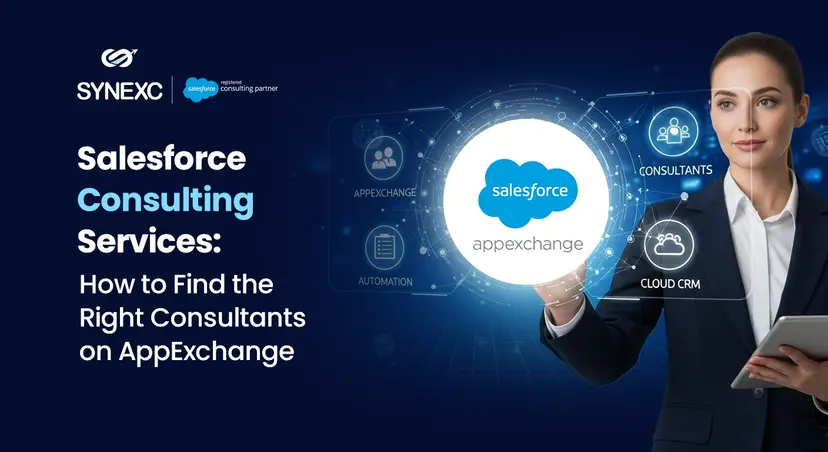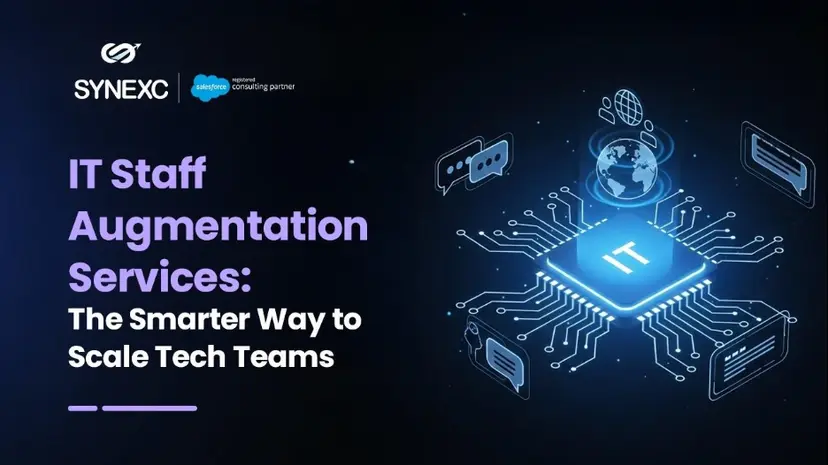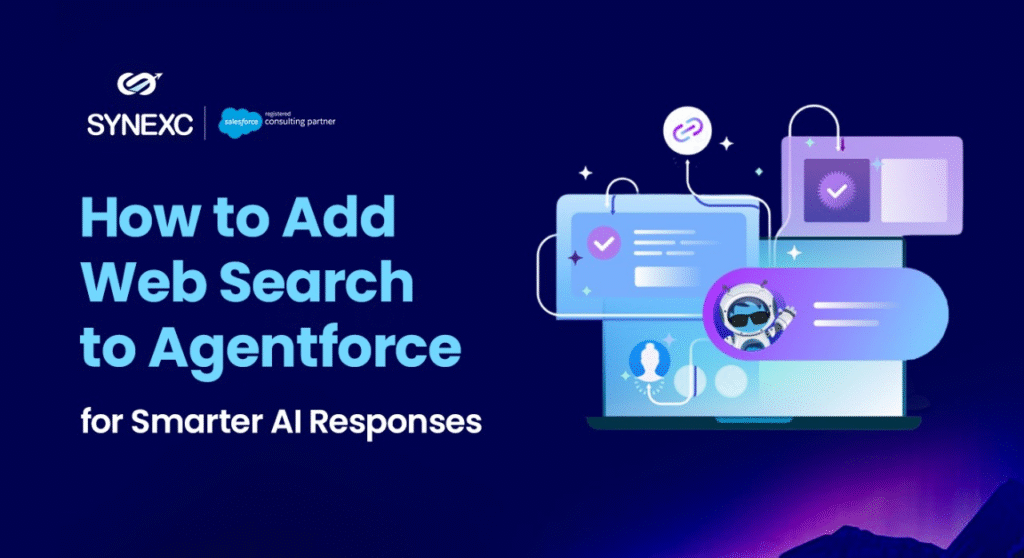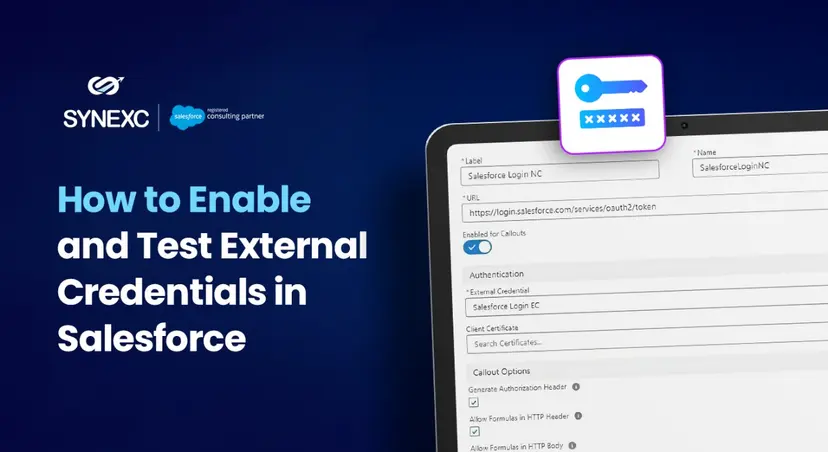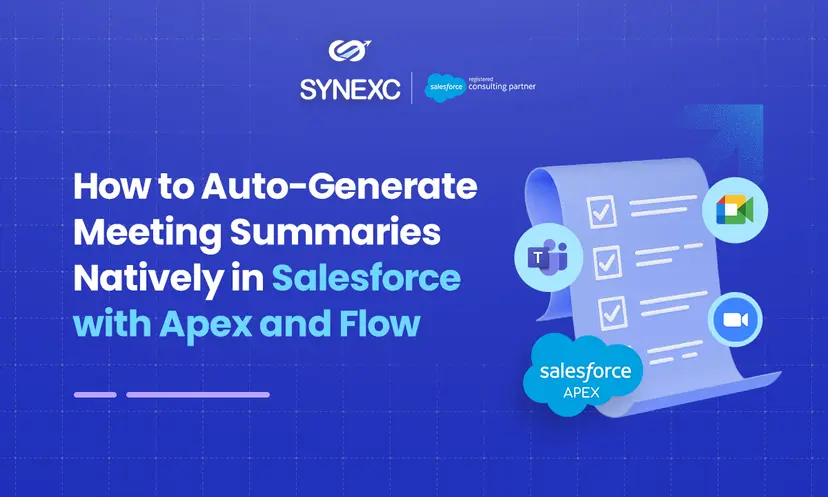No business thinks they need Salesforce Managed Services.
Until they do!
Most companies think about Salesforce in two phases: setup and usage. You implement, go live, and expect the system to run, just like your email or HRMS.
But Salesforce isn’t plug-and-play. It’s a constantly evolving operational layer. The way your team uses it in year one will rarely match what’s needed in year three or even six months later, especially when you start layering in new clouds, integrations, business logic, user groups, or data sources.
Being the nerve center for your sales, service, and, increasingly, your operations, Salesforce can be seen as more of an infrastructure than a product. And like any critical infrastructure, it needs to be maintained, updated, and realigned as your business moves. Not when it breaks.
That’s why companies are shifting from one-off consultants and internal teams to Salesforce Managed Services teams that are in your stack, know your process, and don’t need a learning curve to get going when the next integration, rollout, or glitch comes up.
Let’s find out in detail!
What is Salesforce Managed Services, after all
Simply put, Salesforce Managed Services (SMS) means having a dedicated team that continuously manages, optimizes, and aligns your Salesforce org with your evolving business needs.
Depending on your business’s complexity, this usually includes
- Managing cloud-to-cloud and third-party integrations
- Handling admin tasks (user roles, profiles, data hygiene)
- Rolling out new automation or features
- Monitoring performance, usage, and adoption
- Troubleshooting bugs and pushing proactive fixes
- Preparing your org for Salesforce’s triannual releases
- Supporting roadmap planning and strategic use of the platform
So, instead of relying on a single admin or reacting to issues when they break something downstream, you get a structured team that maintains Salesforce as a living, integrated system.
Why Does It Matter Now More Than Ever?
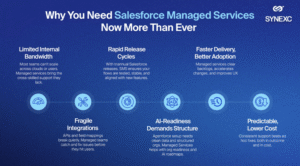
Salesforce Managed Services was always essential, but its demand has grown significantly in recent years. Here’s why
1. Most orgs don’t have internal Salesforce depth.
Even at mid-sized firms, Salesforce is usually managed by one person juggling admin, support, user questions, and basic automation. But Salesforce isn’t one tool anymore; it’s often Sales Cloud, Service Cloud, and Experience Cloud, integrated with external platforms like HubSpot, NetSuite, or a proprietary backend.
That’s not one job. It’s five.
Managed services give you access to a composite skillset that includes admin, dev, integration specialist, tester, and architect without building that team in-house.
2. Salesforce is increasing integration- heavy.
Data integration issues cited by 95% of IT leaders are a top barrier to AI adoption, according to the MuleSoft Connectivity Benchmark Report.
Whether it’s MuleSoft, custom middleware, or something as simple as a webhook into Slack, these setups need to be maintained. APIs fail, data mismatches happen, and field mappings change.
Without continuous oversight, integrations quietly break or lose value, and users end up doing manual workarounds that never get reported.
3. Release cycles move fast.
With three major releases annually, Salesforce introduces new features, changes to how flows work, API adjustments, or licensing changes. An unmanaged org risks falling behind or, worse, experiencing automation failures after an untested update.
Salesforce Managed service company prepares your org ahead of time, tests critical flows in sandboxes, and flag opportunities to adopt new features early.
4. Agentforce is deployed, and most orgs aren’t ready yet.
Salesforce isn’t just releasing AI features. It’s re-architecting its core to support autonomous agents, natural language prompts, and predictive workflows through tools like Agentforce.
But the issue is that these capabilities aren’t easy to deploy. If your org isn’t already optimized with clean data, clearly defined processes, proper metadata structure, and performance-ready automation, the AI layer simply won’t land.
Most teams don’t even realize what’s required under the hood to adopt these to hold securely and meaningfully.
A managed services team helps you get strategically ready: cleaning up unused flows, aligning record types, rethinking object relationships, and testing where AI augmentation can actually drive ROI.
Key Benefits of Salesforce Managed Services
Forget theoretical gains; here’s what companies with managed services actually get in practice:
Reduced downtime.
When issues crop up, a sync error, a broken flow, or an API rate limit, there’s already a team that knows your org and can resolve it quickly. No tickets. No 3rd-party learning curve.
Faster change management
Need to update opportunity stages, launch a new lead routing logic, or integrate your new invoicing tool? With SMS, these changes don’t sit in a backlog for weeks. You can iterate in real-time.
Cleaner, usable data.
Data quality decays fast. Users create duplicates, workflows misfire, and integrations overwrite fields. SMS teams regularly conduct audits and clean your data for accurate reporting.
Higher user adoption
Features that remain unutilized are often poorly configured or lack relevance. Managed teams observe how users interact with the platform and tweak UX, permissions, or flows to improve usage.
Cost control
Instead of scrambling to hire a dev every time something breaks or overpaying for a consultant who needs weeks to understand your setup, you get predictable, ongoing access to experts who already know your environment.
Conclusion
In practicality, most companies spend less on managed services than they do on recovering from unplanned outages, bad data, or rushed fixes. Predictable monthly support consistently beats unpredictable firefighting.
At Synexc, your trusted Salesforce managed service provider, we don’t just manage your Salesforce org, we embed ourselves into it.
Whether it’s fixing a broken sync, cleaning up technical debt, or preparing your org for the next-gen Salesforce roadmap, we’re already in the stack before you need us.
- On-demand Salesforce-certified experts
- Proven track record across Sales, Service, and Experience Cloud & more
- 24×5 global delivery with zero hand-holding needed
- Integration specialists across MuleSoft, QuickBooks, HubSpot, and more
- Strategic guidance on AI roadmap and preparedness
Book your discovery session today!!

